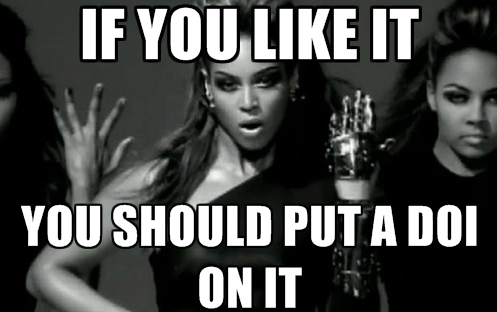Thoughts from #scholarAfrica
I recently attended a workshop in Nairobi addressing the discoverability of African research, called by the Carnegie Corporation and organised by the OpenUCT Initative. Going in to the workshop, I shared a lot of thoughts and bounced a lot of ideas around with Michelle Willmers, the workshop coordinator, as well as Kaitlin Thaney from the Mozilla Science Labs, Tezira Lore from ILRI, Firoze Manji from CODESRIA (Council for the Development of Social Science Research in Africa) and Ernesto Priego from City College London.
Let it be noted that these people are way more qualified than I ever would be to talk about scholarship in the 21st century ! The truth of the matter is that I had pretty much no idea what to expect. Ostensibly, I was to going to be representing the CHAIN-REDS project, and talking about infrastructure currently in place to support discoverability, essentially in terms of the Africa Arabia Regional Operations Centre.
If you like it, put a DOI on it.
It’s a modern truism that you can assign any statement to any person, real or fictitious, on the internet. To continue this fine tradition, I claimed today that Rihanna was to blame for Single Ladies. To rectify that, here’s Beyoncé telling you to cite your damn research properly :

Themes and ideas
The workshop touched on several concepts which are very hard to pin down, living between Open Access, Open Science, data citation, Altmetrics, preservation, impact. Some of the initial presentations to set the stage focussed on setting the scene : how important it was to contemplate the entire process of knowledge generation, not just the “refined” end product (the paper).
So much more
We took a lot of notes and published most of the outcomes as #scholarAfrica. Most of the relevant stuff can be found on Zenodo, and of course the presentation that I made :
